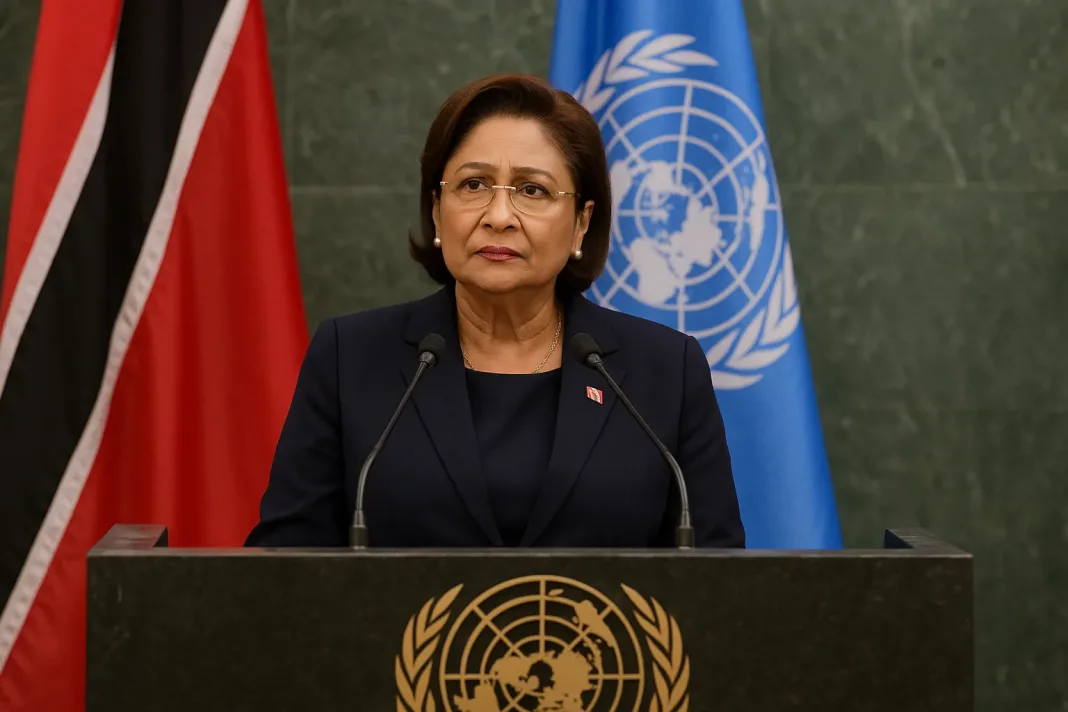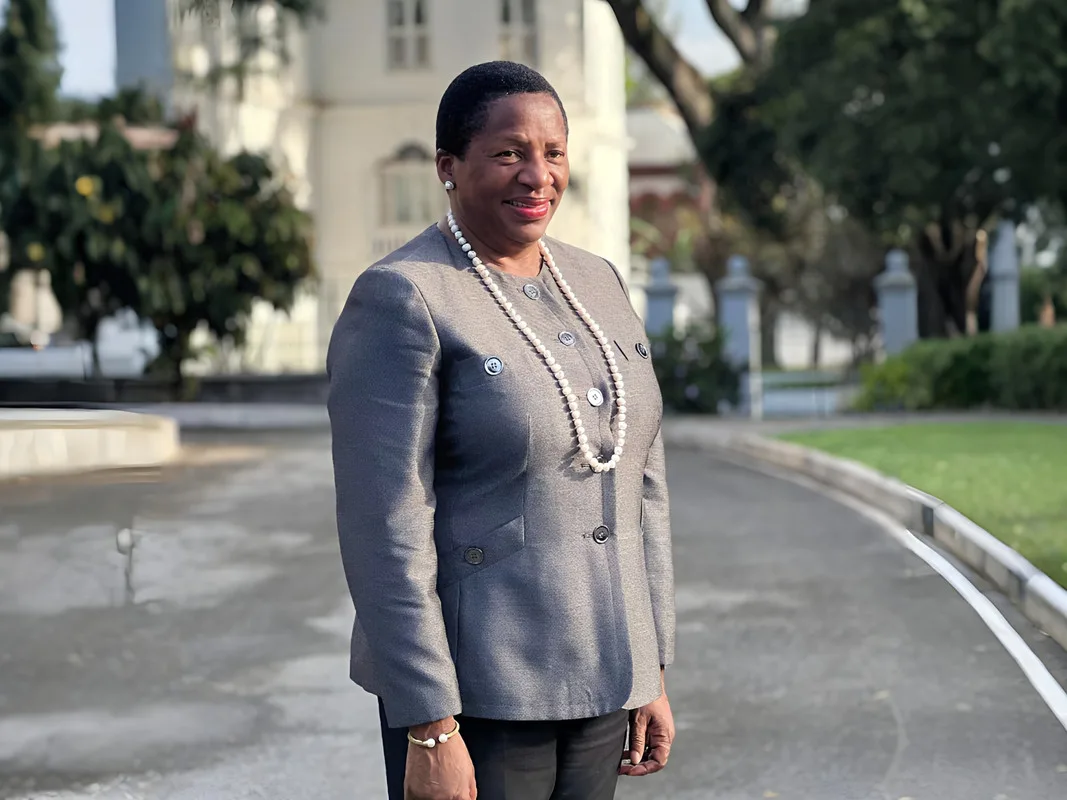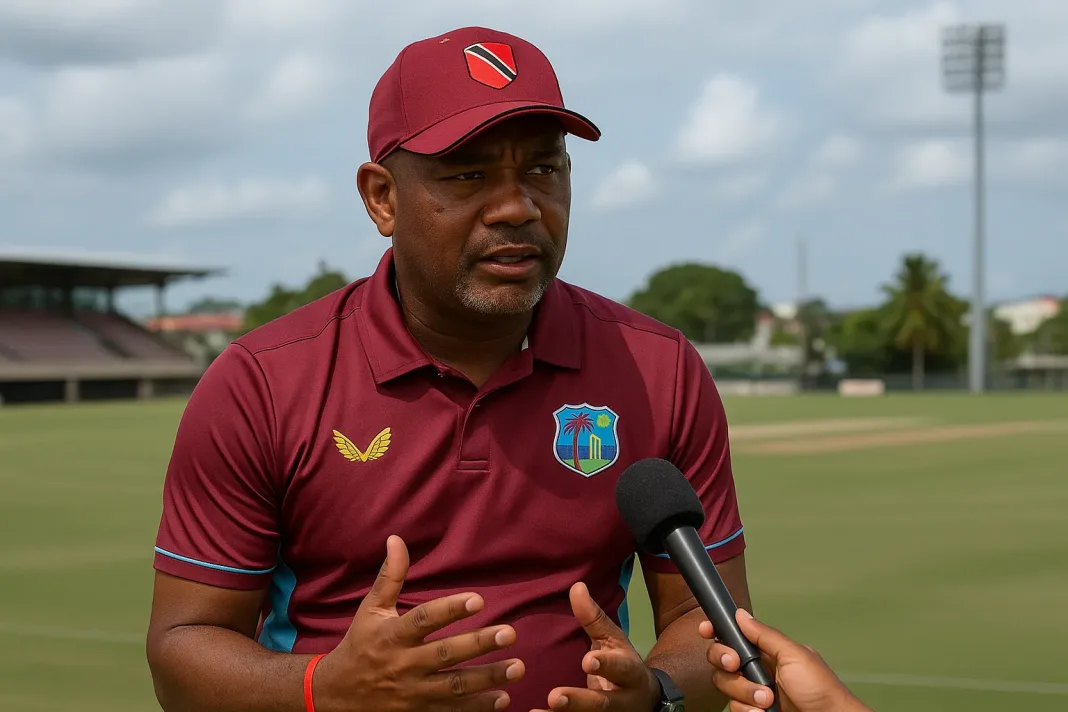This report covers trinidad tobago: kamla’s un with key details and context.
This report covers trinidad tobago: kamla’s un with key details and context.
Prime Minister Kamla Persad-Bissessar of Trinidad and Tobago delivered a significant address to the United Nations General Assembly (UNGA) that has drawn attention for its candidness and departure from traditional diplomatic language. In her speech, she challenged the conventional characterization of the Caribbean as a “Zone of Peace,” arguing instead that the region is increasingly becoming a battleground in a violent conflict that transcends national borders.
This conflict, she noted, is not fought with conventional armies but is driven by the pervasive influence of drugs, firearms, and human trafficking. Persad-Bissessar highlighted alarming statistics that illustrate the detrimental effects of transnational criminal networks on the Caribbean’s vulnerable societies. She echoed sentiments expressed by U.S. President Donald Trump regarding the damaging consequences of narco-trafficking, organized crime, and unregulated migration, emphasizing the urgent need for collective action to address these issues.
The Prime Minister’s remarks may have significant implications for the Caribbean Community (CARICOM), as they call for a reevaluation of the region’s security strategies and diplomatic approaches to combatting crime and violence. By framing the Caribbean’s challenges in this manner, Persad-Bissessar is urging regional leaders to confront the realities of crime and its impact on development and stability.
trinidad tobago: kamla’s un: key developments so far.
Her speech is likely to influence discussions among CARICOM member states regarding collaborative efforts to enhance security and resilience in the face of these growing threats. The Prime Minister’s address has sparked conversations about the need for a unified response to the challenges posed by organized crime and its associated activities.
Persad-Bissessar’s emphasis on the Caribbean’s vulnerability to transnational crime highlights the interconnectedness of security issues across borders. The implications of her speech suggest that CARICOM may need to adopt a more integrated approach to security that encompasses not only law enforcement but also social and economic strategies to address the root causes of crime.
In light of her statements, regional leaders may be prompted to consider new frameworks for cooperation that prioritize intelligence sharing, joint operations, and capacity building among member states. The call for a collective response to these pressing issues reflects a growing recognition that the challenges facing the Caribbean cannot be addressed in isolation.
Furthermore, the Prime Minister’s address may also lead to increased engagement with international partners, as the Caribbean seeks support in tackling the complex issues of drug trafficking and organized crime. The need for a coordinated effort is underscored by the recognition that these problems have far-reaching implications for the stability and prosperity of the region.
As discussions continue within CARICOM, the focus may shift towards developing comprehensive policies that not only address immediate security concerns but also promote long-term development and resilience. The Prime Minister’s speech serves as a catalyst for dialogue on how the Caribbean can effectively navigate the challenges posed by transnational crime while fostering a secure and peaceful environment for its citizens.


